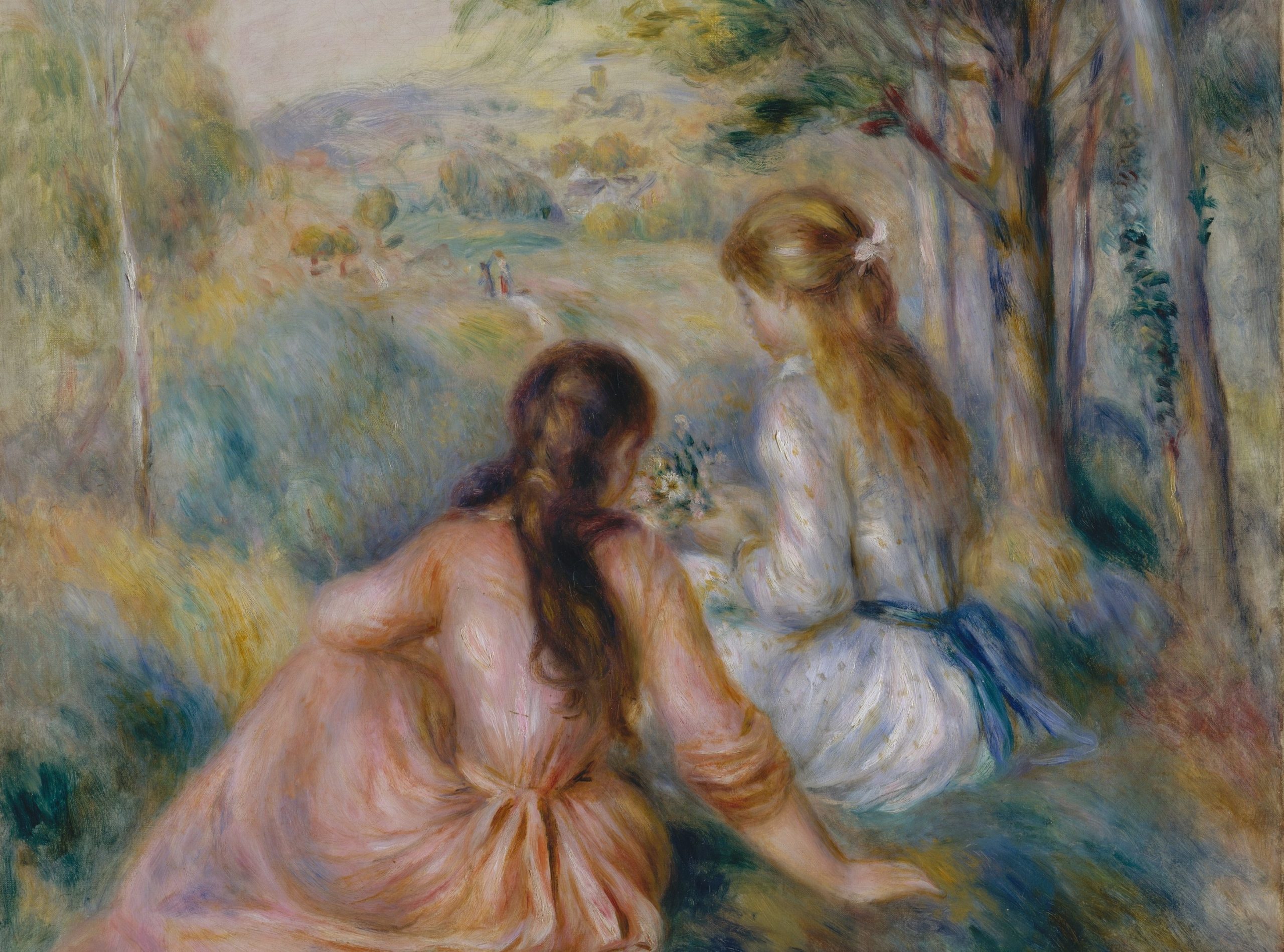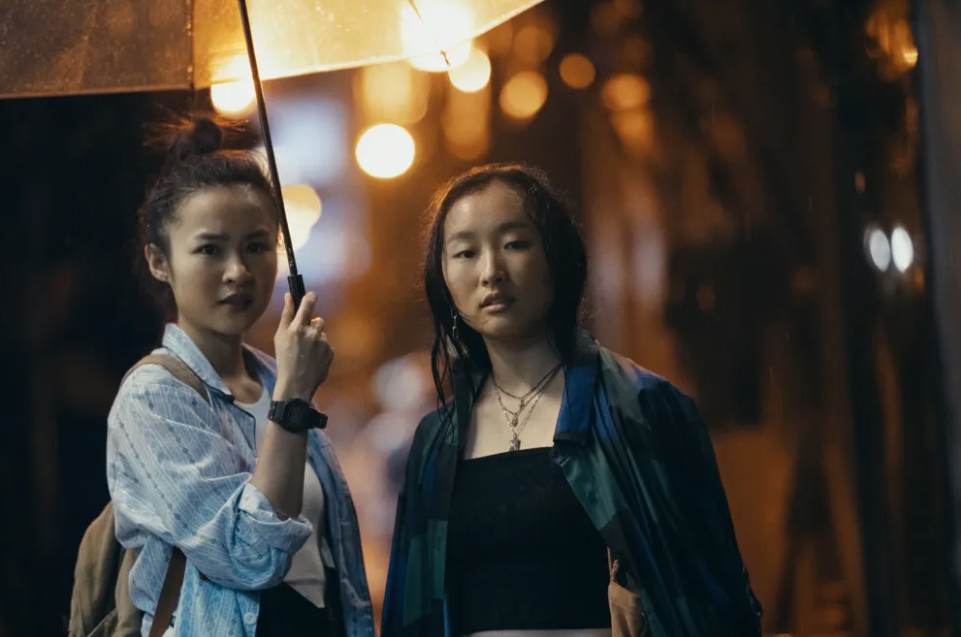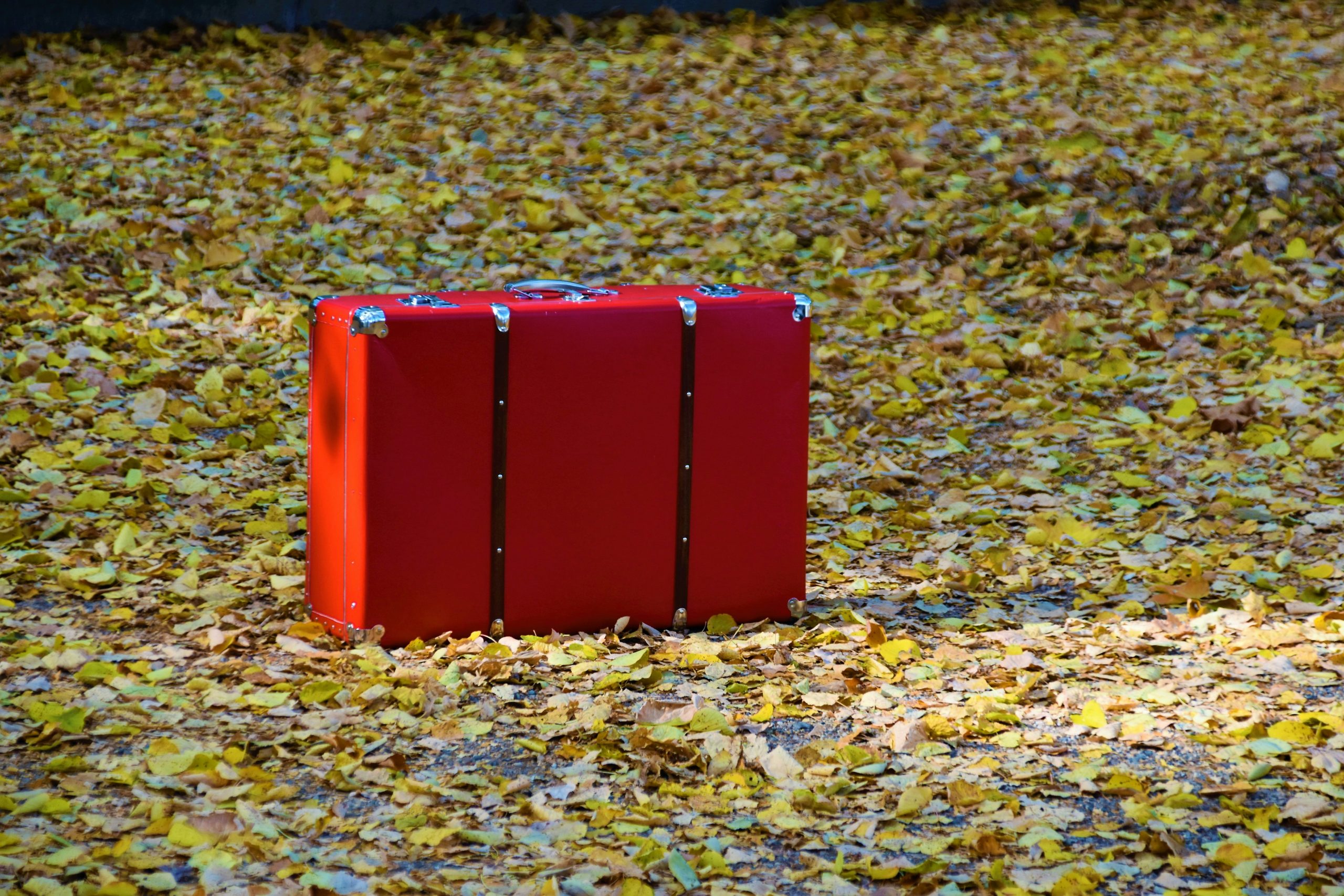interviews
Two Peasant Girls in Rural France Make a Plan to Fool the World
Yiyun Li's novel “The Book of Goose” blurs the line between artistic exploitation and personal intimacy

“All worlds, fabricated or not, are equally real. And so they are equally unreal,” says Agnes, the narrator of The Book of Goose.
Yiyun Li’s newest novel is a propulsive and provoking exploration of what it means to create a world through words—not only that, but what it means to co-create. The Book of Goose is set in a rural French town, struggling with poverty and lack of resources in the wake of World War II. It centers on the friendship between Agnes and Fabienne, two peasant girls on the cusp of adulthood; they define and complete one another, coming up with their own forms of communication, world-building, and philosophy. In their world, nonsense and reality take equal priority. Aided by the village postmaster, they come up with a plan to fool the world.
Li’s prose, as always, is luminous and cutting; despite the heavy topics, it’s also laden with a sly sense of humor (her wordplay game is exquisite, as are her metaphors!). The Book of Goose blurs the line between artistic exploitation and personal intimacy, as well as what it means to define—and seek out—happiness. To me, this novel offers its own system of philosophy and answers to the age-old questions: Who does a story belong to? How do we make sense of the world around us? How do we understand ourselves through other people?
Being a long-time fan, it was an honor to connect with Li over the phone, where we talked about the “sense-making” joy of fiction, passive narrators, and geese.
Jaeyeon Yoo: To start the conversation—how did this novel begin?
Yiyun Li: I was reading an old review that reviewed books about French prodigy children in the 1950s. One of the names was unfamiliar, Berthe Grimault. I started to look into this girl, who was a French peasant girl and nobody had heard of anything about her. She disappeared from history; I just liked that. I forgot how I found it, but someone donated personal papers to a library in upstate New York, from a woman who was the headmistress of an English finishing school. Her report was that this peasant girl was actually illiterate. She wrote really nasty words about this girl—said she was uncouth, did not read or write. I had a feeling [Berthe] might be a literary hoax, but I wasn’t as interested in the hoax. I found the whole thing was not quite making sense. Any time you write—if something doesn’t make sense, that makes you want to write.
JY: The friendship between the two girls, Agnes and Fabienne, was the heart of the novel for me; it reminded me of Elena Ferrante’s Neapolitan novels. What drew you to focus on friendship and two girls rather than one girl?
YL: I didn’t think of the Neapolitan novels until I finished the novel. My editor mentioned and said, “Wow, you know, this pair reminds me of Elena Ferrante’s.” I am interested in girls, especially girls in their early teenage years or not even teenagers yet. I find children that age very interesting—fascinating, in a way, more than older teenagers. Their life is on the cusp between children and adulthood. They feel a lot of things. They see a lot of things. Most children that age, I wouldn’t say they have developed an entire system of talking and articulating their feelings and thoughts.
This pair, because of their upbringing and the lack [of resources], along with who Fabienne is, they invented their own language. They invented their entire system, without knowing it. That is special for girls that age. Something that came before the entire novel, before the plot, was this idea of Fabienne and Agnes sitting together and asking one another, “How do you grow happiness?” “Can you grow happiness?” They’re making a kind of nonsense, but it’s also just very sensible. It makes total sense, who they are and why they are making that nonsense. That’s their entire sort of system; they talk to each other in that way. And then, layer upon layer, they build their world of words.
JY: I think that system comes across very clearly. In that vein, I was struck by Agnes’s take on reality versus fiction, of how she frames their make-believe as closer to the truth. What’s the relationship between sense, truth, and fiction for you?
YL: Can I ask you a question? Why did you choose the word “sense” instead of “facts”? I think people would usually say, “What’s the difference between facts and truth?”
JY: I was listening to you, talking about how they make their own sense and how they use language as a way to make sense of the world around them. That’s why I chose that word.
YL: One thing is, when I am writing, I am not as interested in truth—I’m more interested in what you call “sense,” which I think is a very good word. It’s not that I’m not interested in truth, but I don’t think that truth is something that serves me. You can present something as “true,” but that might very well be not true, right? So, truth is not a pursuit—truth is sort of a byproduct for me. I think making sense is the most important thing for me when I write fiction; I try to make sense. Agnes starts this novel as a way of making sense of her younger years, through writing. For her, whatever truth is about her friendship with Fabienne and swindling the whole world, that truth is less interesting to her than saying, “I’m going to go on record and say this is what happened. This is our story.” Human force is to make sense of something, and to revisit. In that sense, I would say maybe my interest and Agnes’s have aligned here. Because I am not interested in truth as something outside of us, something you want to capture. When we talk about truth, oftentimes it’s already there; you write to reveal or pin down the truth. There’s something with sense that is very hard to pin down, something not for revealing—something rather for poking.
JY: Is this kind of sense-making what fiction is for you? Perhaps a way to help process what happens in the world around us?
What I say to explain my writing to myself is just to make sense of things—and sometimes, also, to make nonsense of things.
YL: Yes. I like that phrase, “sense-making.” Usually, what I say to explain my writing to myself is just to make sense of things—and sometimes, also, to make nonsense of things. I think I do sometimes do a little bit of wordplay. It’s like the two sides of the coin, as cliché as that is: it makes sense but it also makes nonsense. I just love that, I think that give me joy—when I can try to make sense of something and, in the meantime, I can also make some nonsense. Fabienne is also an expert in doing that.
JY: What was the process of doing historical research for The Book of Goose?
YL: The funny thing is, I probably did less research than most people would do when they write about a historical time. There’s a reason for that. My entire thing about getting into the character’s head—Agnes and Fabienne would never think of themselves as living in the post-WWII French countryside. Someone asked me, “How do you make that post-WWII French countryside convincing?” But when you ask that question, you are assuming that you are not from France, you are not from that time. Agnes and Fabienne are not going to think of themselves in that way. In other words, I tried to really imagine that Agnes is telling the story. She has no obligation to convince the reader, “I am a peasant girl from the French countryside.” What she really wants to present is: this is my world, this is the world I created with Fabienne. What is so unique for Agnes are those moments talking about happiness, growing happiness as beets and potatoes. Once I figured that out, research didn’t help me. Does that make sense? Because when you’re researching, you get a lot of facts—about what they eat, do. I gathered all these historical facts, but they cluttered her life. I felt, if I am in her head, that these things didn’t matter. That’s how I approach writing a book. That said, I did do research and I did read history books. For instance, a history book about American occupation in post-WWII France. The good thing about the way I research is that I forget right away [laughs]. The forgetfulness is helpful, actually, because it points out what’s not important.
The only thing I remember from my entire research is what I read about oranges. One day, the American military came to Western France. The French peasants had never seen oranges before then. Not only had they never seen oranges, but they had never seen anything in that orange color. “Orange”—as fruit or color or word—was not in their lives. For the local French peasants, the coloring changed in their lives when the Americans came. What an astonishing thing, right? I was not a French peasant, but I can tell you a relatively connected story. I grew up in Beijing in the late ’70s, early ’80s. Neon green, like the color of a tennis ball, wasn’t in our lives. We had a lot of colleges around, where we grew up. One day, there was an American student going to college, and he was doing inline skating in the crowded streets of Beijing. His inline skates were neon green. I had never seen that color in my life. That realization is a kind of sharpness. So, I read this historical anecdote and that’s why I took the orange as being meaningful [in the novel] because, across culture and history, there’s always a moment when you first encounter something—and that something stays with you.
JY: Agnes and Fabienne’s intimacy really blurred a lot of lines between the intellectual, the emotional, the romantic.
There’s always something uneasy with intimacy between people.
YL: Anytime intimacy exists, it’s never that simple or easy to mine. There’s always something uneasy with intimacy between people. The relationship between Agnes and Fabienne is romantic, but it’s also pre-sexual, right? They’re not sexual girls yet. Their intimacy and Fabienne [as a character] surprised even me towards the end—I only then realized how much despair she has. I liked the intimacy between them; I liked that Fabienne had to introduce [a male alter ego] to get a romantic relationship with Agnes, and then “killed” the boy. But it’s all from the characters. It’s not me, as an author, deciding to put things into the story. It’s really Fabienne’s doing, and she is probably a very good writer.
JY: At one moment, Agnes reflects, “Am I passive? I’ve noticed that Americans are quick to call a person passive, which is never meant as a compliment.” What did this type of “passive” narrator allow you to do? I suppose another way of asking this is: why Agnes, and not Fabienne?
YL: Yes, why can’t I have Fabienne be the narrator? Fabienne is very sharp—her entire being is sharp, and she’s always just trying to get to the point, the essence of things. Agnes is less sharp than Fabienne and also less pure, in the way she is attuned to all different people. She observes, she absorbs, but I also feel like she doesn’t have that kind of commitment to anything that Fabienne does. In American culture, we tend to call people like her “passive.” But I like characters like her, who are a little smudgy—muddier. I like that, because not everything is clear and she has a lot of ambivalence. And I think that attitude narrates her reading, opening up an interesting space: less pointed, less driven. By nature, I like that kind of narrator. Maybe I myself am one of those.
JY: I like these types of narrators, too. And I love those terms, “smudgy” and “muddy”—I wonder how they might connect to the idea of idiocy, because Agnes is often described as an “idiot” or “imbecile.”
YL: For some reason, I’m so fond of those two words. If I talk to myself, I would say, “Yiyun, you idiot.” I know these words are considered to be not that good. But [to me] it encompasses the capacity for not acting. Agnes possesses that capacity of not taking any action, not committing to anything, of waiting to see what’s going on. She can just plant herself like a tree. She’s not stupid, but she is slow. From the outside, that looks passive or idiotic. That, to me, often reflects some sort of depth. Fabienne is so sharp, so fun, so interesting, but I wouldn’t say she is extremely deep. I have a feeling that even Fabienne knows, that this kind of depth is what she can rely on [Agnes for]. Speaking of the two characters forming into one, what Fabienne doesn’t have is exactly this capacity for muddiness. But that’s why Agnes is always called by Fabienne as an idiot.
JY: Is this focus on slowness and idiocy part of what inspired the title?
YL: It’s a very strange title, right? I don’t know why, but the title came very early on. I just wanted to write a book called “The Book of Goose.” I think the goose is a fascinating kind of animal. If you look at language, the goose is never reflected well in language (in Chinese or in English): silly goose, wild goose chase. The goose is never a smart animal. But they are smart! They’re complicated! I feel very fond of geese. I thought this complexity, this mixture of a little slow, a little funny—it reminded me of Agnes.
JY: Do you keep geese?
Happiness is not going to be the product that you grow; it’s always something that, while you’re growing something else, just comes in momentarily—not everlasting, not enduring.
YL: For years and years, I said every spring that maybe we should have a couple of goslings. No one in my family liked that idea [laughs]. I still think about it. Where my husband grew up in China, they kept geese as guards. They are very fierce birds, so I don’t know—I don’t think my dog would like it. My dog is very timid.
JY: Something that’s prominent in this book, as well as your other works, are these themes of hindsight and retrospection. Could you speak more about the role of memory in your writing?
YL: If one wants to be glib, I think one will say all fiction or all literature is about memory. But that’s a little glib. We do live simultaneously, in multiple times in life. When I teach, I always say to my students, “You’re sitting here, listening to me lecture. Part of you is also living in the moment when you were thirteen, and you and your best friend were out there in the river swimming, or you were on a holiday.” I think the moment we consciously feel, we are proceeding multiple moments in our lives. It may not be even articulated or continued memories, but the moments of something impressionable from the past. And that’s important for my writing. I don’t usually write from beginning to the end. Because whatever happens now becomes a patterning—something has had to happen in the past, to make this happening at this moment. When we’re thinking and writing, we’re going to make certain moments connect—that are not actually connectable. It’s more about exploring what can be connected, even though there’s no connection on the surface. That’s why I love fiction, how you can do that.
JY: I think this connects beautifully to what you were saying before, about how fiction also allows you to make sense out of nonsense. I have one last question, which does veer a bit on the nonsensical. As Fabienne asks in the beginning of the novel to Agnes, “How do you grow happiness?”
YL: I would not grow happiness! If you try to grow happiness, it surely will fail, right? Happiness is probably a byproduct. It’s not going to be the product that you grow; it’s always something that, while you’re growing something else, just comes in momentarily—not everlasting, not enduring.









